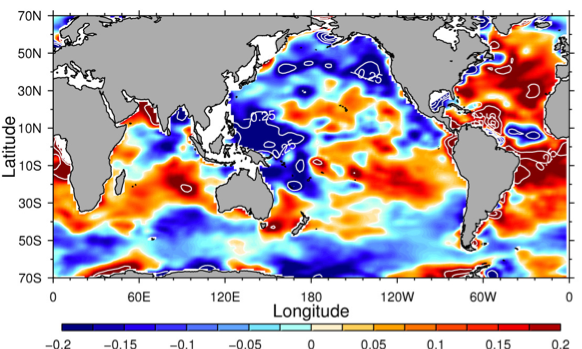Sign up for FlowVella
Sign up with FacebookAlready have an account? Sign in now
By registering you are agreeing to our
Terms of Service
Loading Flow


Further effects of changing ocean temperature
Warmer sea temperatures are also associated with the spread of invasive species and marine diseases. The evolution of a stable marine habitat is dependent upon myriad factors, including water temperature. If an ecosystem becomes warmer, it can create an opportunity where outside species or bacteria can suddenly thrive where they were once excluded. This can lead to forced migrations and even species extinctions.
Warmer seas also lead to melting from below polar ice shelves, compromising their structural integrity and leading to spectacular shelf collapses. Scientists also worry that warmer water could interrupt the so-called ocean conveyor belt, the system of global currents that is largely responsible for regulating Earth's temperature. Its collapse could trigger catastrophically rapid climate changes.